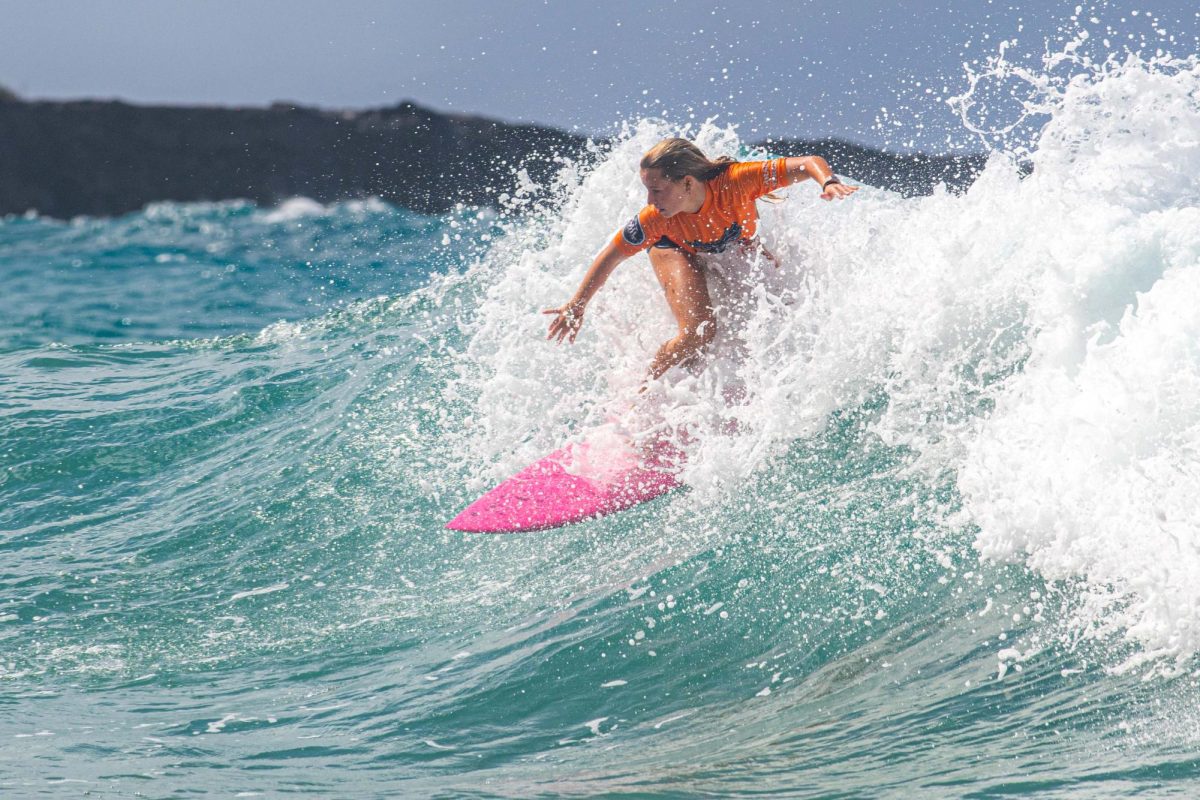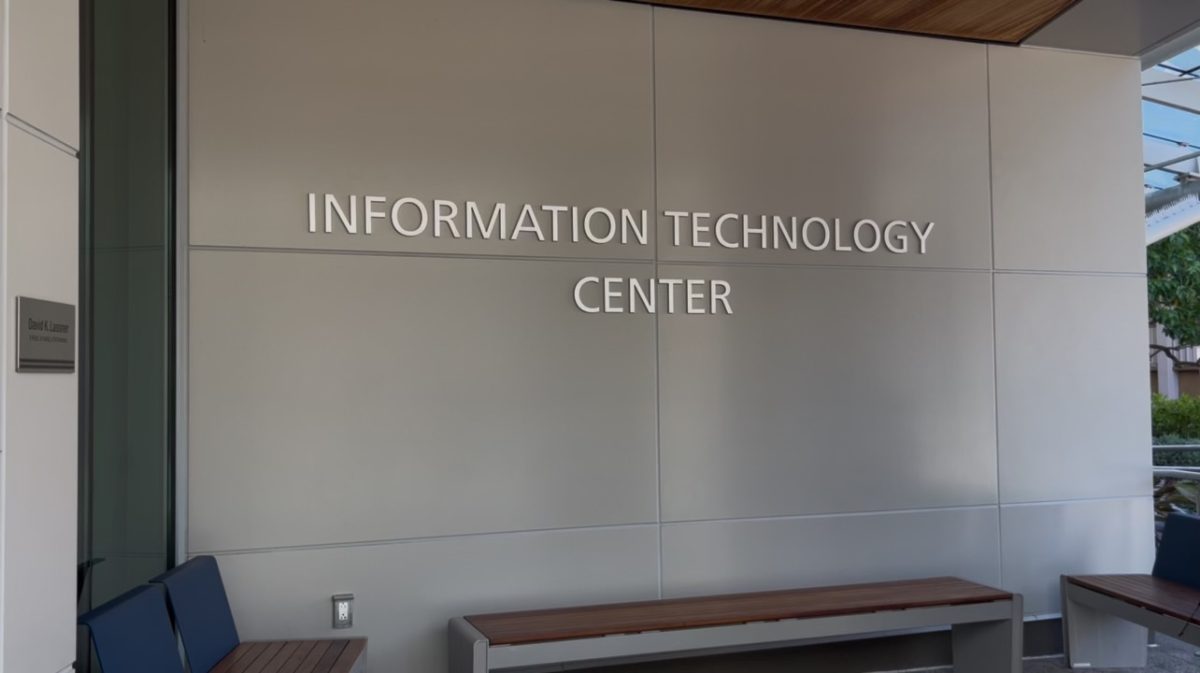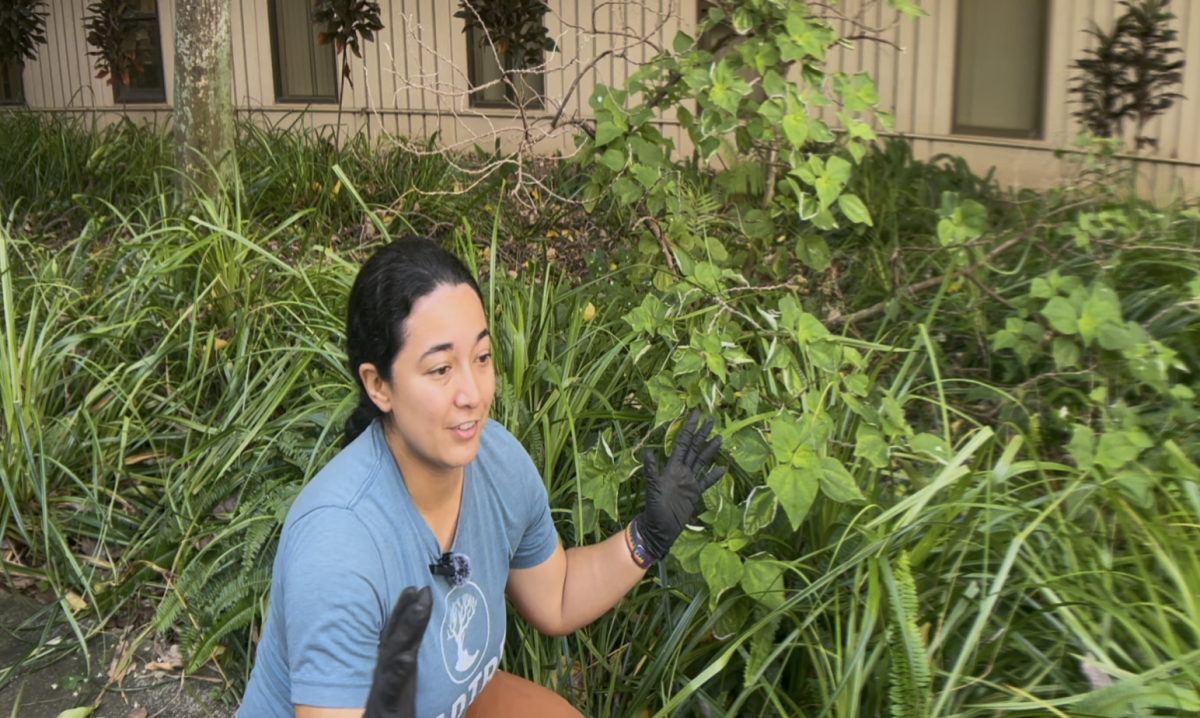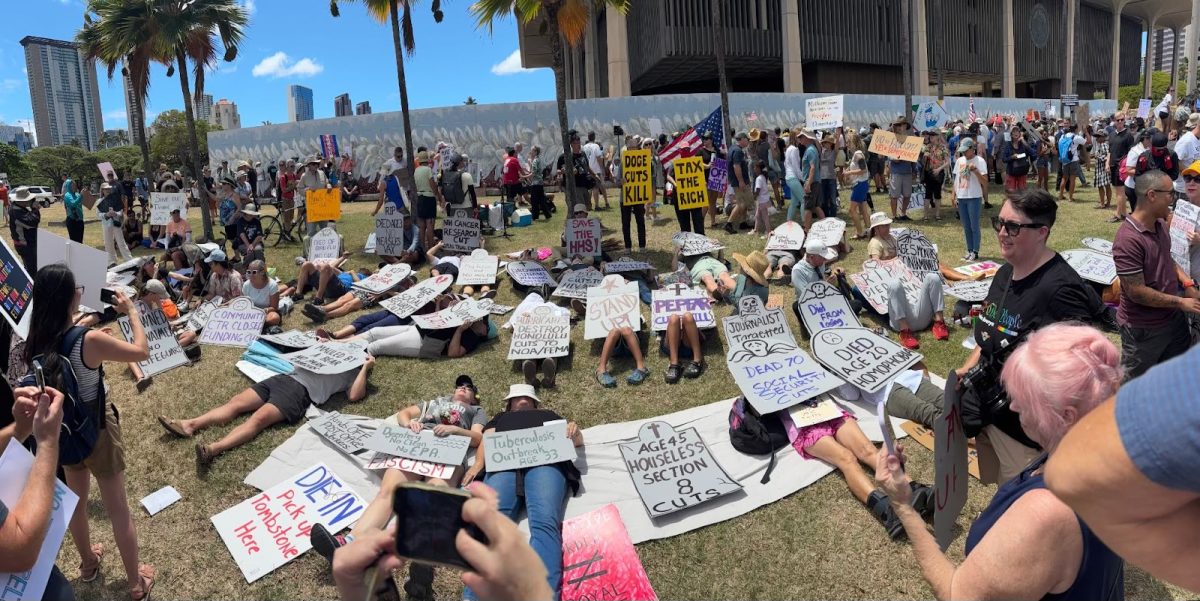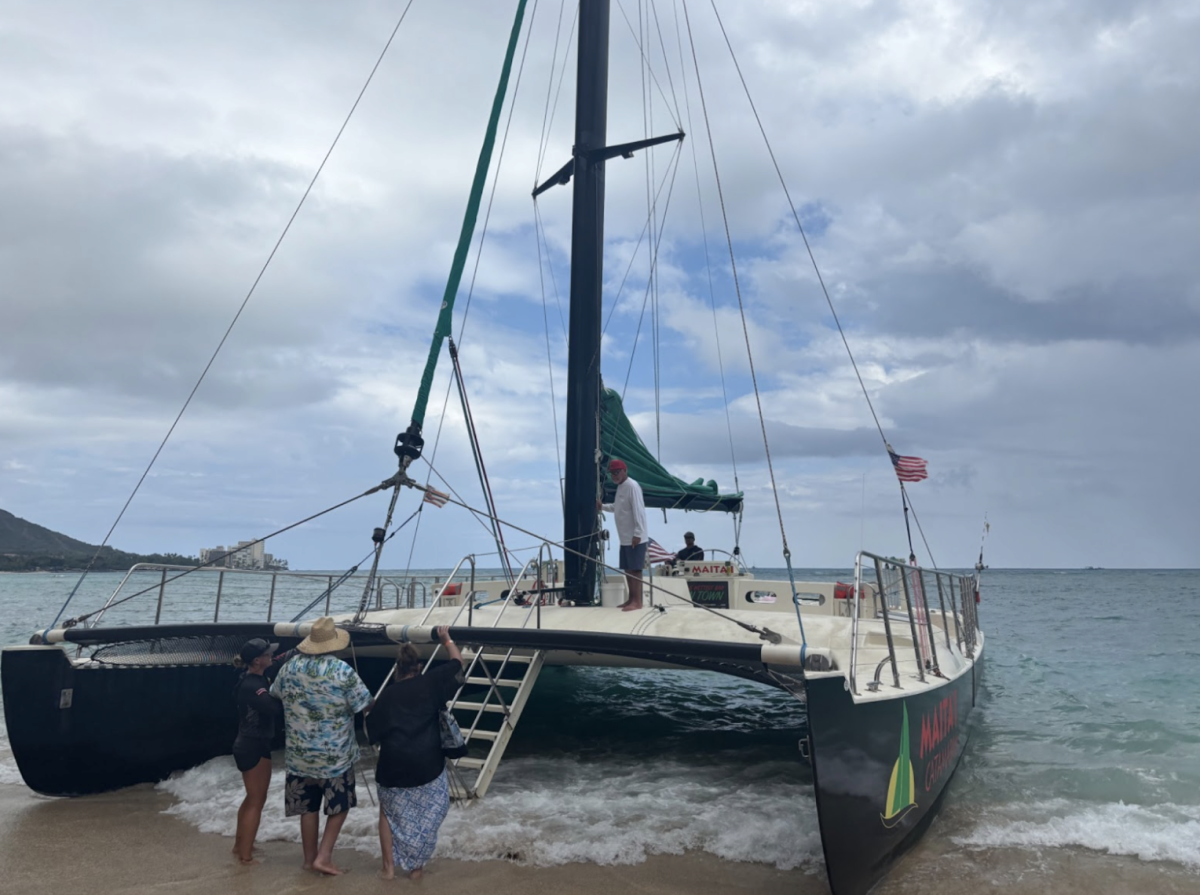Stirling Morita had ended a long day of judging the Louisville Kentucky Newspaper Contest, when he received a rattling phone call.
A resolution, commissioning he and his nonprofit organization to suddenly create a set of media-literacy guidelines for all of Hawaiʻi to make use of, was being heard by the state Senate the next day. Not only was Morita unaware of what his organization’s role would be in Hawaiʻi’s legislative pursuits, but he had no idea what the bill might entail.
“It would’ve been nice for someone from the legislature to talk to us about this in advance,” he said. “I mean, we were caught blindsided on this whole thing.”
That resolution, SR 132, promised improved media literacy in Hawaiian communities and a fruitful collaboration with a national journalism organization. Not only did this seemingly benign bill fizzle out in legislation, but it left a sour taste for many involved.
The resolution had a noble aim, to address the rise in misinformation and disinformation across popular media. The Hawaiʻi Chapter of The Society of Professional Journalists had been requested to create a set of guidelines that the public could use to gauge whether or not the information they were consuming was credible. As president of this chapter, Morita said, he assumed he would be presiding over the creation of the document.
State senators, though, saw this resolution from a different point of view. To Sen. Karl Rhoads, for example, he said it was just a proposal.
“It was no intention to blindside them,” Rhoads said. “The (resolution), as I understand it, is just a request to them to come up with a sort of template for your average person to parse through to figure out what’s true, and what’s not true.”
Rhoads and his fellow senators explained the reasoning behind the request was to further the education of media literacy to those who simply don’t understand it yet.
The resolution’s introducer, Sen. Chris Lee, saw this resolution as including more than just guidelines created by the national SPJ organization and not as specific rules people would need to follow strictly, he said, but more as the start to a conversation on media literacy.
“We’ve all seen that with the establishment of newer ‘sources of news’ online, which has promoted false disinformation and read untrue stories for their own political gain,” he said. “Education and factual information are the only antidote to uncertainty and the ability for those in power to take advantage of an uneducated society for their own long game.”
What Lee said he expected with requesting SPJ Hawaiʻi to participate would be a supportive organization for this resolution.
“SPJ represents almost all major credible media outlets, both left, right and center,” he said. “With standards that are apolitical and simply focus during a credible objective process for disseminating information.”
What the legislators may not have expected, however, is that SPJ Hawaiʻi was not even in alignment with the idea.
“They want us to be able to tell people how to tell the truth,“ Morita said. “You tell me how to do that.”
In addressing the hefty requirement of a commission this large, Morita said, plainly and simply, why the task was unfeasible:
“I would love to cure all of the world’s ills and evils, but I don’t think we can,” he said. “The reason being, is that it bases (the resolution) on our ethics code, the SPJ ethics code. It’s not for us to use to apply to somebody outside SPJ, or somebody in the general public.”
That code, he said, was designed to help journalists keep ethics in check, not to dictate the relationships that non-journalists have with their own biases and ethics.
“I’m restricted,” Morita said. “I can’t use that ethics code to basically tell people what to read. The reason being is, when you do that kind of stuff, you may not be exactly telling people what to read, but it gets real close to it, and it’s what they call a ‘slippery slope.'”
Despite Morita and SPJ Hawaiʻi being against the resolution, and including numerous testimonies about how the resolution is a “violation of first amendment rights,” Rhoads defended the resolution’s request for separating “the good and the bad” for individuals, but he also repeated one vital piece of information.
“You don’t have to use it,” he said. “There’s no mandate. It’s a (resolution). It’s just a request to them, which they are under no legal obligation to do so. If they even respond to the request, then, whatever the product is, no one would be required to use it, if they didn’t feel like it.”
Of the 39 people that submitted testimony about the resolution, only two people supported it.
Tracey Souza, a graduate student of social work at UH Mānoa, was one of those, and she said, “I am in support because I do believe that it’s important that there is some type of effort for more objective news sources.” But, she also questioned the task, by saying, “How can criteria be created by humans, and implemented by humans, that innately have biases? I guess that’s where some of my concerns or questions would come into play.”
That lost feeling of trust within Hawaiʻi’s community is what Lee initially was hoping to address, he said.
“I think it’s the next step in a conversation our entire society is having about how we ensure truce and ensure fact,” Lee said. “And ultimately, we all together collectively, as residents living in the same place, can base our most important decision making and the future that we hand our kids on what we know to be true.”


